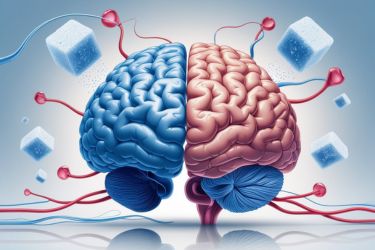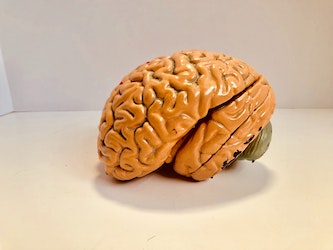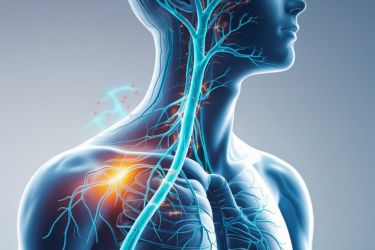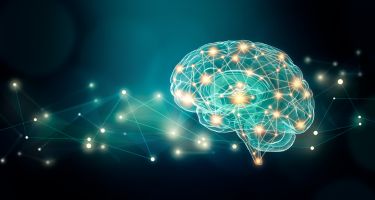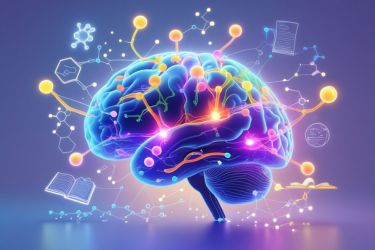Artificial Intelligence (AI) is reshaping the landscape of health care in profound ways. It offers an opportunity to enhance diagnosis, streamline treatment options, and manage patient data more effectively. As we explore the impact of AI, we will uncover its potential to transform how health professionals deliver patient care and how patients experience treatment.

The evolution of AI technologies has enabled remarkable innovations within the health sector. With capabilities ranging from predictive analytics to automated data processing, AI is not just a futuristic concept but a current reality that aids healthcare providers daily. By leveraging these advancements, we can improve the quality of care and reduce operational costs, leading to a more efficient health system.
As we navigate this complex and exciting topic, we will also address the challenges and ethical considerations that accompany the integration of AI in health care. Understanding these aspects will help us appreciate both the potential benefits and the limitations of this technology in our quest for better health outcomes.
Key Takeaways
- AI enhances diagnosis and treatment in modern health care.
- Innovations in technology improve management of patient data.
- We must consider ethical challenges as AI becomes more integrated.
Evolution of AI in Health Care

Artificial intelligence has transformed health care over the decades. It has moved from simple applications to sophisticated systems that enhance patient care. In this section, we will explore the historical perspective, recent advancements, and future projections of AI in health care.
Historical Perspective
In the 1970s, the use of AI in healthcare began, focusing on solving biomedical problems. Early systems assisted in diagnostics and treatment planning. These programs laid the groundwork for more complex technologies.
By the 1990s, AI research expanded significantly. Researchers developed expert systems to mimic human decision-making. As our understanding grew, AI found applications in medical imaging and data analysis.
The introduction of machine learning around the 2000s was a major milestone. This approach allowed systems to learn from data and improve over time. As a result, AI became more effective in predicting health outcomes.
Recent Advancements
Recently, AI has advanced rapidly, enabling unprecedented capabilities in health care. Today, algorithms analyse vast amounts of data, improving disease diagnosis and treatment selection. For example, AI systems can interpret medical images with remarkable accuracy, often surpassing human radiologists.
The integration of AI in clinical workflows is also notable. Systems provide real-time decision support for health care professionals. This reduces administrative tasks and allows more focus on patient care.
Several AI tools are now in use for managing chronic diseases, such as diabetes. Predictive algorithms help tailor treatment plans and improve patient adherence. Research continues to explore new AI applications, enhancing our ability to improve patient health outcomes.
Future Projections
Looking ahead, we foresee a significant shift in how AI will reshape health care. Enhanced natural language processing could allow systems to better understand patient records and notes. This advancement will streamline workflows and improve patient interactions.
We also expect AI to play a crucial role in personalised medicine. As genetic sequencing becomes more common, AI can help analyse genetic data for tailored treatment plans.
Moreover, ongoing research will likely focus on the ethical use of AI in health care. Ensuring patient privacy and minimising bias in AI algorithms are essential concerns. We are committed to addressing these challenges as we move forward in this exciting field.
AI Technologies in Health Care

AI technologies are making significant strides in health care. We explore several key areas such as machine learning, natural language processing, robotics and automation, and data analytics. Each of these plays a crucial role in advancing patient care and streamlining processes.
Machine Learning
Machine learning is a subset of AI that focuses on developing algorithms that enable computers to learn from data. In health care, it helps improve diagnostic accuracy by analysing large datasets to identify patterns.
For instance, machine learning can be used in medical imaging to detect anomalies in X-rays and MRIs. By training these algorithms on thousands of images, we can achieve a high level of precision that reduces the chances of human error.
Moreover, machine learning aids in predicting patient outcomes by analysing electronic health records (EHRs). This allows us to personalise treatment plans and proactively manage patient care.
Natural Language Processing
Natural language processing (NLP) allows computers to understand and interpret human language. In health care, NLP is vital for processing unstructured data from clinical notes, research articles, and patient communications.
Through NLP, we can extract meaningful insights from vast quantities of text. For example, by analysing physician notes, we can identify trends and inform better treatment strategies.
Additionally, NLP facilitates chatbots and virtual assistants, improving patient engagement. These technologies can answer questions, schedule appointments, and remind patients to take their medications, enhancing overall satisfaction.
Robotics and Automation
Robotics and automation in health care are revolutionising surgical procedures and routine tasks. Surgical robots provide surgeons with enhanced precision and control during operations, reducing recovery times and minimising complications.
Automation is also seen in administrative tasks, such as patient check-ins and billing processes. By streamlining these operations, we can reduce wait times and improve the overall efficiency of health care facilities.
In rehabilitation, robotic devices assist patients in their recovery, offering feedback and monitoring progress. This technology ensures that patients receive continuous support, ultimately leading to better health outcomes.
Data Analytics
Data analytics plays a crucial role in transforming health care delivery. By analysing large volumes of patient data, we can uncover insights that enhance decision-making and drive improvements.
We use analytics to identify trends in patient populations, leading to targeted interventions. For example, recognising high-risk patients enables us to provide timely support, preventing hospital readmissions.
Predictive analytics also help anticipate disease outbreaks and monitor public health trends. With these insights, health care providers can allocate resources more effectively, ensuring that care reaches those who need it most.
In conclusion, AI technologies such as machine learning, natural language processing, robotics, and data analytics are changing health care for the better. By leveraging these innovations, we enhance patient care, improve efficiencies, and drive better health outcomes.
The Role of AI in Diagnosis and Treatment

Artificial Intelligence (AI) plays a crucial role in enhancing how we diagnose and treat diseases. Its capability to analyse vast amounts of data quickly and accurately allows us to improve patient outcomes significantly. We can harness AI to refine diagnostic processes and tailor treatment plans, bringing precision to healthcare.
Improving Diagnostic Accuracy
AI technologies, particularly machine learning, are transforming diagnostic accuracy in healthcare. Through the analysis of medical images, AI algorithms can detect anomalies more reliably than traditional methods. For instance, AI can identify early signs of conditions like cancer in radiology images, helping us intervene sooner.
These systems learn from vast datasets of medical images, honing their ability to identify patterns in diseases. This capability reduces the chances of human error in diagnosis. We see AI tools assisting radiologists and pathologists in providing more precise assessments, ultimately leading to improved treatment strategies.
Personalised Treatment Plans
AI also allows us to create personalised treatment plans based on individual patient data. By analysing medical histories, genetic information, and treatment responses, AI can suggest tailored therapies for each patient. This approach maximises the effectiveness of treatment while minimising side effects.
AI-driven systems evaluate patient records and current research to determine the best course of action. For example, in oncology, AI can help identify which chemotherapy regimens would likely work best for a specific patient based on their cancer type and genetic markers. This level of precision ensures that we are not adopting a one-size-fits-all treatment approach but rather a bespoke solution.
Surgical Assistance
AI is increasingly being integrated into surgical procedures to enhance precision and safety. We can use robotic surgical systems, guided by AI, to assist surgeons during complex operations. These systems offer superior accuracy, reducing recovery times and minimising complications.
AI can also analyse real-time data during surgeries, providing surgeons with critical information to make informed decisions. For instance, it can assist in navigating anatomical structures, ensuring complete and careful procedures. This technology not only supports our surgeons but helps enhance patient safety and surgical outcomes.
Health Care Data Management

Effective health care data management is crucial for optimising patient care and streamlining operational processes. This section addresses the key elements of data collection, privacy, security, and ethical considerations that affect how we handle health care data.
Data Collection and Storage
We need to ensure that data collection is systematic and reliable to enhance patient outcomes. Health care data often includes patient demographics, medical histories, and treatment plans. Electronic Health Records (EHRs) play a vital role in this process.
Storing data efficiently is equally important. We should use secure databases that allow easy access and analysis. Cloud-based storage solutions are increasingly popular because they can handle vast amounts of information while maintaining accessibility for authorised personnel. Implementing a data governance framework can help us manage and retrieve data effectively to support decision-making.
Data Privacy and Security
Protecting patient data is a legal and ethical obligation. We must prioritise implementing robust security measures to safeguard sensitive information. This includes adopting encryption methods, secure access protocols, and regular security audits.
We also need to ensure compliance with regulations such as the General Data Protection Regulation (GDPR). This legislation governs how we collect, store, and use personal data. Keeping patients informed about their rights is essential, as is obtaining their consent before processing their information.
Ethical Considerations
Ethical considerations are central to health care data management. We must handle data with integrity, ensuring it is used responsibly. This includes being transparent about how we analyse and share data.
We should also consider the implications of data use in AI applications. While AI can improve health care delivery, biases in data can lead to unequal treatment for certain patient groups. To mitigate these risks, we must rigorously evaluate our data sources and algorithms.
By focusing on governance and ethical standards, we can enhance trust in our health care systems and protect patient rights.
Training and Skill Development
In the realm of healthcare, effective training and skill development are essential for integrating artificial intelligence (AI) technologies. We must focus on structured educational programmes, support workforce transitioning, and ensure ongoing professional development for all healthcare workers.
Educational Programmes
We need to implement comprehensive educational programmes focusing on AI in healthcare. These should cover the basics of AI, its applications, and ethical considerations.
Key components of these programmes include:
- Workshops and seminars to enhance understanding.
- Online courses for flexible learning at one's own pace.
- Hands-on training with AI tools and software used in clinical settings.
We can incorporate patient and public involvement, making training more relevant and effective. Educational programmes should equip staff with both technical skills and the ability to apply AI responsibly in their practice.
Workforce Transitioning
As AI technology evolves, a smooth workforce transition is vital. We should develop clear pathways for existing staff to adapt to new roles that utilise AI.
Actions include:
- Assessment of current skills to identify gaps.
- Tailored training sessions to fill these gaps.
- Mentorship opportunities connecting experienced staff with those new to AI.
By addressing these aspects, we can facilitate a better transition. This approach helps ensure healthcare professionals feel confident in using AI and understand its value in enhancing patient care.
Ongoing Professional Development
Continuous learning is crucial in the fast-paced world of AI. We must promote ongoing professional development to keep our skills sharp and stay updated with technological advances.
To support this, we can:
- Encourage participation in conferences and workshops focused on AI advancements.
- Create communities of practice where professionals share insights and challenges.
- Offer certifications for specialised AI skills.
By prioritising ongoing development, we enhance our collective capability and maintain high standards of care, enabling us to leverage AI successfully within our practices.
Health Care Industry and Business
The integration of AI in health care plays a significant role in transforming the industry and its business landscape. Its influence extends to economic aspects, stakeholder involvement, and fostering innovative investments.
Economic Impact of AI
AI technology is reshaping the financial dynamics within the health care sector. Improved diagnostic accuracy can lead to earlier detection of diseases, reducing long-term costs.
We see AI streamlining operational processes, which can lower administrative expenses. For instance, automating appointment scheduling and patient records management enhances efficiency, allowing health care providers to allocate resources more effectively.
Moreover, AI-driven data analytics provide insightful trends that can inform business decisions. Predictive analytics helps us anticipate patient needs and optimise service delivery, ultimately resulting in cost savings and improved patient satisfaction.
Stakeholder Engagement
Engaging various stakeholders is vital for successful AI integration. This includes medical professionals, patients, insurance companies, and technology providers.
We must focus on collaboration to ensure that the technology meets the needs of all parties involved. For example, training sessions for staff are essential to bridge knowledge gaps and build confidence in using AI tools.
Patient engagement also plays a key role. Clear communication about AI's benefits can foster trust and encourage patients to embrace technological advancements in their care. Involvement from insurance companies can facilitate smoother transitions to AI-driven models, where reimbursement policies reflect new innovations.
Innovation and Investment
Investment in AI technologies is crucial for innovation in our health care system. Businesses must not only seek funding but also demonstrate the value of their solutions.
Venture capital in health care AI has grown significantly, recognising the potential to revolutionise treatments and operational efficiency. We have seen successful initiatives where funding supports start-ups focused on AI applications, enhancing patient care and diagnostics.
Furthermore, sustained investment encourages a culture of innovation, pushing companies to continuously improve their offerings. Innovative partnerships between tech firms and health institutions can accelerate the development of AI solutions, benefiting all players in the industry.
AI Governance and Policy
Effective governance and policy surrounding AI in healthcare is crucial for ensuring safety, ethics, and accountability. By establishing clear frameworks, we can build public trust and optimise the use of AI technologies in health settings.
Regulation and Compliance
Regulatory frameworks are essential for guiding the development and use of AI in healthcare. We need robust policies that enforce compliance with existing laws while adapting to new technologies.
Regulations must cover various aspects, including data privacy, patient protection, and safety protocols. AI systems must comply with laws that regulate their design, development, and deployment. Institutions can refer to the AI Governance - IQVIA resource for best practices.
Moreover, ongoing monitoring is critical. This ensures that AI technologies continually meet ethical standards and comply with relevant guidelines. Maintaining compliance helps mitigate risks, fostering a safer healthcare environment.
Ethics and Accountability
AI in healthcare raises important ethical questions. It is vital for us to establish guidelines around the responsible use of these technologies. We must consider data usage, consent, and the implications of AI-driven decisions on patient care.
Accountability is also crucial. Stakeholders must agree on who is responsible for the outcomes produced by AI systems. This includes the developers, healthcare professionals, and regulatory bodies.
We can look to the AI Governance Policy to understand how to implement effective policies. Developing frameworks that prioritise ethics not only enhances patient trust but also aligns AI innovations with societal values.
International Collaboration
The global nature of healthcare technology demands international cooperation on AI governance. We should work collectively to share knowledge and best practices. This can help address challenges that cross borders.
By collaborating, we can develop harmonised regulations that facilitate innovation while ensuring safety. For instance, health systems must align their governance strategies to work effectively across different jurisdictions.
The WHO announcement about a new centre for AI in health governance highlights the importance of collaborative efforts. This collaboration can aid in establishing universal ethical standards and regulatory measures that benefit everyone.
Challenges and Limitations
Integrating AI into healthcare presents several significant challenges and limitations. These can impact the effectiveness and adoption of AI technologies in medical settings. We need to understand these issues to navigate the path forward effectively.
Technical Limitations
AI technologies rely heavily on data. A critical challenge is ensuring the quality and quantity of data used for training algorithms. Often, healthcare data can be incomplete or inconsistent, affecting the AI's performance. For instance, certain medical records may lack detailed patient histories, which leads to less accurate diagnoses.
Interoperability is another technical hurdle. Different healthcare systems often use diverse formats and standards, making data sharing difficult. This fragmentation can hinder the development of robust AI models that require vast, well-structured datasets.
Moreover, the algorithms themselves can be complex. Many AI models operate as “black boxes,” meaning their internal workings are not easily understandable. This lack of transparency creates challenges for healthcare professionals who need to explain AI-driven decisions to patients, thereby affecting trust.
Adoption Barriers
Healthcare providers face significant obstacles in adopting AI technologies. One major barrier is the high cost of implementation. Healthcare facilities must invest in both the technology and the training of staff, which can strain budgets, especially in smaller organisations.
There is also a general resistance to change within the industry. Many healthcare professionals may be hesitant to adopt AI due to concerns over reliability or the potential for job displacement. This fear can stall the integration of beneficial technologies that can enhance patient care.
Furthermore, regulatory frameworks around AI in healthcare remain underdeveloped. Compliance with evolving laws and ethical guidelines makes it challenging for organisations to implement AI solutions confidently.
Potential Risks
The integration of AI in healthcare poses significant potential risks. A primary concern is data privacy and security. Patient records can be vulnerable to breaches, especially when large amounts of data are processed by AI systems. This can result in sensitive information being compromised.
Additionally, reliance on AI can lead to ethical dilemmas. AI may inadvertently propagate biases present in training data, resulting in unequal treatment across different demographic groups. This could worsen existing healthcare disparities in society.
Finally, there is the risk of over-reliance on AI technologies. Although AI can assist in making diagnoses or treatment plans, we must remember that human expertise is irreplaceable. Doctors must maintain their critical thinking skills and not solely rely on AI findings.
Case Studies and Real-world Applications
AI is transforming healthcare through various real-world applications. Insights from hospitals, public health initiatives, and global health efforts illustrate how technology is driving innovation in treatment and improving societal health outcomes.
Hospital Implementation
Many hospitals are adopting AI to enhance patient care. For instance, AI-assisted diagnostic tools analyse medical images like X-rays and MRIs to detect conditions such as pneumonia or tumours faster than human radiologists. This reduces wait times for critical diagnoses, leading to quicker treatment.
Some hospitals use AI for patient scheduling and communication. Automated systems ensure efficient appointment management, reducing no-show rates. Additionally, AI algorithms help personalise treatment plans based on patient history and demographics, allowing healthcare providers to offer tailored care.
These advancements are not only improving patient outcomes but also increasing operational efficiency, which is critical in busy hospital environments.
Public Health Initiatives
AI is also a vital component in public health initiatives. For example, during the COVID-19 pandemic, we utilised AI to track virus spread and optimise resource allocation. Predictive analytics helped health authorities manage surges in cases and guide vaccination efforts effectively.
Moreover, AI tools analyse social media and search trends to identify potential outbreaks early. This proactive approach enables faster responses, which is key in safeguarding community health.
Furthermore, AI is assisting in mental health initiatives by providing chatbots that deliver support anytime. This innovation helps reach individuals who may not seek traditional treatment, paving the way for broader access to care.
Global Health Impact
The global health landscape is witnessing significant improvements due to AI. Countries with limited resources leverage AI for telemedicine, connecting patients in remote areas with specialised care. This technology bridges gaps in access, ensuring that essential services reach underserved populations.
AI is also playing a role in vaccine development. By simulating how viruses interact with human cells, researchers can expedite the discovery of effective vaccines, as seen with recent COVID-19 vaccines.
Moreover, AI-enhanced data analysis supports global health monitoring efforts, enabling organisations such as the World Health Organisation to track health trends and develop strategies for disease prevention. This collective effort enhances health security worldwide, illustrating AI’s potential to uplift global health standards.
Frequently Asked Questions
In this section, we will explore common questions about the integration of artificial intelligence into healthcare. We will discuss its benefits, current applications, potential improvements in patient outcomes, possible drawbacks, advantages for healthcare professionals, and future developments in the industry.
What are the potential benefits of integrating artificial intelligence into healthcare services?
Integrating AI into healthcare can lead to increased efficiency and productivity. It can assist in streamlining administrative tasks, thus allowing healthcare professionals more time to focus on patient care.
AI can also enhance diagnostic accuracy. Machine learning algorithms can analyse vast amounts of medical data, potentially identifying patterns that humans might miss.
In what ways is artificial intelligence currently being applied within medical and healthcare contexts?
AI is currently used in various ways, such as in diagnostic imaging. Programs can analyse images like X-rays and MRIs to detect anomalies.
It is also applied in predictive analytics. By examining patient history and other factors, AI can forecast health risks, allowing for early intervention.
How might artificial intelligence improve patient outcomes in the healthcare sector?
AI can personalise treatment plans based on individual patient data. Tailoring care to specific needs can result in better health outcomes and higher patient satisfaction.
Additionally, AI can provide continuous monitoring of patients’ conditions. This can lead to timely interventions when problems arise, reducing complications.
What are the possible disadvantages or challenges associated with the adoption of AI in healthcare?
One challenge is the risk of data privacy issues. With sensitive patient information being processed by AI systems, safeguarding this data is crucial.
Another concern is the reliance on technology. If AI systems fail or provide inaccurate information, it could jeopardise patient care.
How do healthcare professionals stand to gain from the utilisation of artificial intelligence?
Healthcare professionals can benefit from AI by improving their decision-making process. AI systems can provide evidence-based recommendations, enhancing the quality of care.
Moreover, AI can reduce burnout by taking over routine tasks. This allows healthcare workers to spend more time on patient interaction and complex care activities.
What are the predicted advancements and future developments of AI within the healthcare industry?
We anticipate that AI will continue to evolve with advancements in machine learning algorithms. This could lead to more sophisticated diagnostic tools and treatment options.
There are also expectations for improved AI integration into telemedicine. This could enhance remote patient management, making healthcare more accessible to diverse populations.



